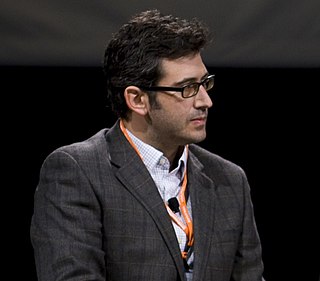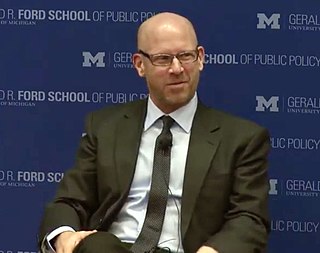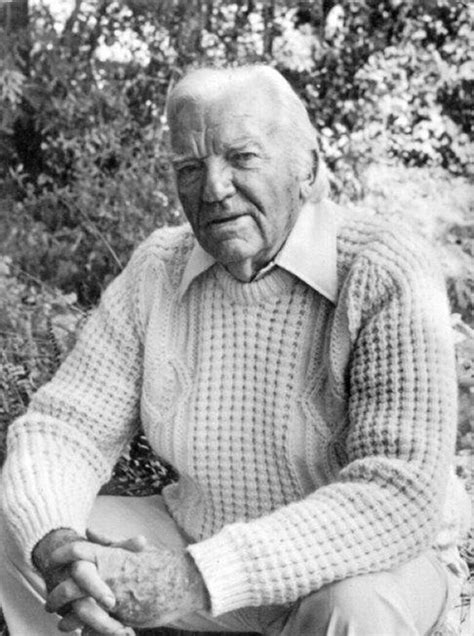Top 1200 Historical Context Quotes & Sayings - Page 4
Explore popular Historical Context quotes.
Last updated on April 20, 2025.
When objects are presented within the context of art (and until recently objects always have been used) they are as eligible for aesthetic consideration as are any objects in the world, and an aesthetic consideration of an object existing in the realm of art means that the object's existence or functioning in an art context is irrelevant to the aesthetic judgment.
The facts which our senses present to us are socially performed in two ways: through the historical character of the object perceived and through the historical character of the perceiving organ. Both are not simply natural; they are shaped by human activity, and yet the individual perceives himself as receptive and passive in the act of perception.
This general tendency to eliminate, by means of unverifiable speculations, the limits of the categories nature presents to us is the inheritance of biology from The Origin of Species. To establish the continuity required by theory, historical arguments are invoked, even though historical evidence is lacking. Thus are engendered those fragile towers of hypothesis based on hypothesis, where fact and fiction intermingle in an inextricable confusion.
Later, I went one step further, by putting in some invented "historical" bits [into the Lincoln in the Bardo]. And reading those alongside the actual historical bits was like looking into a sort of a painful mirror, because "my" parts were so show-offy at first. They stood out because they were so flamboyant.
The whole world has become a crowded theater. You could say something here in New York and have it be heard in Afghanistan and potentially trigger riots and it may be something that to you was innocent or was in jest or was satirical and it's taken out of context. I mean, a joke, a tweet or a blog post can make it halfway around the world before the context gets its boots on.
I have rarely read a more wonderful book than To Win Her Favor by Tamera Alexander. Rich with historical detail and fully developed characters, this novel held me spellbound until the last page. If you read one historical novel this year, make it To Win Her Favor. It will linger with you long after the last page.
I feel like we're so limited by the context at which we look at life. The way we look at who we're supposed to be and how we're supposed to love... everything. I feel like that, in and of itself, is a project of a lifetime: the problem of how to break out of the limiting context that is imposed upon us by the educational system, by the church, by our parents... As a kid I rejected it without even thinking about it. Now that I'm a little older, I see how deeply destructive it really is.
When I came to New York, to Brooklyn, I met Alvin Ailey and Stanley Crouch and August Wilson. They were always putting things in a philosophical context. All the great jazz musicians did, too. There was always a sub-context to what they were saying about music even though they would be very down home and earthy. So I started to develop, in addition to my power and ability to simply hear, a way to place myself in a time.
I got to get the right people in the right job. Because a lot of costs can be taken out in the context of your administration without the legislature. For example, using technology to do more with less. Using technology to fight fraud. Reorganizing and streamlining can be done within the context of the administration.
Don´t be unnecessarily burdened by the past. Go on closing the chapters that you have read; there is no need to go back again and again. And never judge anything of the past from the new perspective that is arriving, because the new is new, incomparably new and the old was right in its own context, and the new is right in its own context.
It is important to insist on the historical truthfulness of the narrative of the fall of Adam and Eve. Just as the account of the creation of Adam and Eve is tied in with the rest of the historical narrative in the book of Genesis, so also this account of the fall of man, which follows the history of man's creation, is presented by the author as straightforward, narrative history
I'm actually the chairman of the historical foundation [in Franklin] called the Heritage Foundation in Franklin. We've got a pretty good group of folks, very influential folks, who are really striving to protect those lands and so far we're not having a lot of problems. We're growing too fast. Everybody wants to put up some sort of neighborhood but that's our biggest battle. Nobody's really trying to go on any of the historical land.
Wikipedia lacks the habit or tradition of respect for expertise. As a community, far from being elitist (which would, in this context, mean excluding the unwashed masses), it is anti-elitist (which, in this context, means that expertise is not accorded any special respect, and snubs and disrespect of expertise is tolerated).
Memory is like fiction; or else it's fiction that's like memory. This really came home to me once I started writing fiction, that memory seemd a kind of fiction, or vice versa. Either way, no matter how hard you try to put everything neatly into shape, the context wanders this way and that, until finally the context isn't even there anymore... Warm with life, hopeless unstable.
Since the point of erotica is to offer the consumer sexual experiences without having to compromise with the demands of the other sex, it is a window into each sex's unalloyed desires. Pornography for men is visual, anatomical, impulsive, floridly promiscuous and devoid of context and character. Erotica for women is far more likely to be verbal, psychological, reflective, serially monogamous and rich in context and character. Men fantasise about copulating with bodies; women fantasise about making love to people.
'Believing' cannot tip the scales in making a historical judgement about whether something really happened. I can choose to believe that George Washington threw a silver dollar across the Rappahannock, but my believing that he did it has nothing to do with whether or not he really did do it. So also with the story of Jesus walking on water: Believing that he did it has nothing to do with whether he really did do it. 'Belief' cannot be the basis for historical conclusions; it has no direct relevance.
To receive the gospel is to receive an entirely different view of reality where Christ is the epicenter of all things. He becomes the center of our universe, the source, the purpose, the goal, and the motivation of all that we are and do. When a man receives the gospel, his entire life begins to be lived out in a different context, and that context is Christ.
I got to get the right people in the right job. Because a lot of costs can be taken out in the context of your administration without the legislature.For example, using technology to do more with less. Using technology to fight fraud. Reorganizing and streamlining can be done within the context of the administration.
Whatever is being investigated, created or produced now, in movies or TV, needs to consider the context in which it is being distributed. It's not a vacuum. There are certain universal themes of love, conflict, loyalty or family that are everlasting and that need to be presented in a way that makes it feel relevant, even if it's a period piece. You need to consider what context that film, that story and those characters are being seen in.
Fashion museums think the more you know about the significance of clothes culturally, the more interesting they are. We certainly don't neglect the aesthetic aspects of clothes. But, I feel that what sets us apart from social, economic, and even aesthetic, or art historical context is that we are not only talking about clothes as kind of art objects created by an artist designer, but also we're talking about the various meanings that clothes have in the world, and how that changes and how we kind of create meanings around clothes.
Every once in a while I have this revelation like, "Wow, a hundred years ago the world wasn't black and white." It was in color. Photographed in a certain way, people look from another time. We are just not used to seeing ourselves in that context. Something that's fascinating about photography is you can isolate a moment, tear it out of its context, and see it afresh. Another realization is that, "Wow, there's a big world out there, and people are still doing all sorts of the things that they used to do." We don't just live in iPad land.
For film, I think because it's more detailed, and especially with historical material, you really have to find the right projects. Speaking as a mixed-race woman, there aren't many historical stories about people like me. When people think of 'dual heritage,' they think it's a modern concept, but really it's not.
[T]he visibility of styles is itself a product of historical consciousness. ... The very notion of "style" needs to be approached historically. Awareness of style as a problematic and isolable element in a work of art has emerged in the audience for art only at certain historical moments - as a front behind which other issues, ultimately ethical and political, are being debated.
There are dozens of writings outside of the Bible that verify the historical accuracy of many of the names of people, places, and events mentioned in the Bible. In fact, external sources verify that at least eighty persons mentioned in the Bible were actual historical figures. Fifty people from the Old Testament, and thirty people from the New Testament.
I have to write three books a year to make a reasonable living out of writing - unless, of course, she gets a major American film deal. Phryne has been optioned since the very first book, but to make a historical TV movie, it costs $30,000 a day extra for the historical detail to be correct, so most people aren't doing it.
I'm always looking for context in which people tell stories. In "Fight Club" it's these support groups for dying people, and then in "Choke" it's 12-step recovery groups. In one novel it's artists' colonies, in another novel it's a diary form that submariners' wives typically keep so that when their husband comes back from serving on a submarine they have an accounting of their spouse's time. So I'm always looking for, number one, a non-fiction context - because you can tell a more outrageous story if you use a non-fiction form.
Historical romance is still very strong in the market. Writers of historical romance are making the bestselling lists on a regular basis and careers are growing. However, since there is much more variety in romance today, the total sales of historicals might be down from their peak. The talk of the market softening is a reflection of this, and of the fact that one does not see big growth in this area of the market.
Mental illness is a real thing. It has real material consequences for people who suffer from it and at the time even the most biological finding reflects social context in very important ways, and so I think psychiatry is better off looking both at biology and at social context and really trying to think of the relationship between these and I think doctors and patients are better off that way.
Dialectical logic undoes the abstractions of formal logic and of transcendental philosophy, but it also denies the concreteness of immediate experience. To the extent to which this experience comes to rest with the things as they appear and happen to be, it is a limited and even false experience. It attains its truth if it has freed itself from the deceptive objectivity which conceals the factors behind the facts - that is, if it understands its world as a historical universe, in which the established facts are the work of the historical practice of man.
All knowledge that is about human society, and not about the natural world, is historical knowledge, and therefore rests upon judgment and interpretation. This is not to say that facts or data are nonexistent, but that facts get their importance from what is made of them in interpretation… for interpretations depend very much on who the interpreter is, who he or she is addressing, what his or her purpose is, at what historical moment the interpretation takes place.
It is, let me say, at the very least by no means self-evident that there is more liberty, equality, and fraternity in the world today than there was one thousand years ago. One might arguably suggest that the opposite is true. I seek to paint no idyll of the worlds before historical capitalism. They were worlds of little liberty, little equality, and little fraternity. The only question is whether historical capitalism represented progress in these regards, or regression.
Communication requires cultural context, and technology facilitates our ability to cross-reference ideas over time. Charles Moore were saying: Enough with the sterile, context-less architecture. Enough with the functional-minded frame of operation. How about a little mess? How about a little, let's say, syntax? A little quotation using history? How about some other meanings or symbols? I think that's the only logical reaction when you have to thoughtfully manage the communication of a lot of information.
Our main source of psychic energy in the future will depend on our ability to understand this symbol of evolution in an acceptable context of interpretation. Only in the context of an emergent universe will the human project come to an integral understanding of itself. We must, however, come to experience the universe in its psychic as well as in its physical aspect. We need to experience the sequence of evolutionary transformations as moments of grace, and also as celebration moments in our new experience of the sacred.
Cultural concepts are one of the most fascinating things about historical fiction. There's always a temptation, I think, among some historical writers to shade things toward the modern point of view. You know, they won't show someone doing something that would have been perfectly normal for the time but that is considered reprehensible today.
Economy and ideology. The claim (presented as an essential postulate of historical materialism) that every fluctuation of politics and ideology can be presented and expounded as an immediate expression of the structure, must be contested in theory as primitive infantilism, and combated in practice with the authentic testimony of Marx, the author of concrete political and historical works.
I think context, location matters a lot. Because location obviously in my situation, it's the space in which the work is going to be exhibited. And since some of the work I do is created onsite, it requires a different type of space, versus the smaller drawings or more subject-oriented work. So that the context becomes important.
The annual award of $5,000 goes to an author for a meritorious book published in the previous year for children or young adults. Scott O'Dell established this award to encourage other writers--particularly new authors--to focus on historical fiction. He hoped in this way to increase the interest of young readers in the historical background that has helped to shape their country and their world.
This, then, is the foundation of sanctification in Reformed theology. It is rooted, not in humanity and their achievement of holiness or sanctification, but in what God has done in Christ, and for us in union with him. Rather than view Christians first and foremost in the microcosmic context of their own progress, the Reformed doctrine first of all sets them in the macrocosm of God's activity in redemptive history. It is seeing oneself in this context that enables the individual Christian to grow in true holiness.
It is clear, from these considerations, that the three methods of classifying mankind-that according to physical characters, according to language, and according to culture-all reflect the historical development of races from different standpoints; and that the results of the three classifications are not comparable, because the historical facts do not affect the three classes of phenomena equally. A consideration of all these classes of facts is needed when we endeavour to reconstruct the early history of the races of mankind.
Our knowledge of the historical worth of certain religious doctrines increases our respect for them, but does not invalidate our proposal that they should cease to be put forward as the reasons for the precepts of civilization. On the contrary! Those historical residues have helped us to view religious teachings, as it were, as neurotic relics, and we may now argue that the time has probably come, as it does in an analytic treatment, for replacing the effects of repression by the results of the rational operation of the intellect.
Pictures are the idea in visual or pictorial form; and the idea has to be legible, both in the individual picture and in the collective context - which presupposes, of course, that words are used to convey information about the idea and the context. However, none of this means that pictures function as illustrations of an idea: ultimately, they are the idea. Nor is the verbal formulation of the idea a translation of the visual: it simply bears a certain resemblance to the meaning of the idea. It is an interpretation, literally a reflection.
Parents are led to believe that they must be consistent, that is, always respond to the same issue the same way. Consistency is good up to a point but your child also needs to understand context and subtlety . . . much of adult life is governed by context: what is appropriate in one setting is not appropriate in another; the way something is said may be more important than what is said. . . .
Africans and persons of African descent must assume the primary responsibility and leadership in historical research....if we are to continue to leave practically all important historical research and writing concerning the black race to the white man, then we must be prepared to accept, uncomplainingly, the white man's point of view.
I do like the idea of the novel of repressed college students being a contemporary novel of courtship! I guess what I would say to that is, we tend to think of historical periods and historical mores as ending a lot more concretely than they do. Like, in an Austen novel, there are lots of reasons - cultural, moral, religious - why the characters don't have sex during courtship. Maybe, even though those reasons have kind of expired, historically, they're still around in some sense.
Writers of historical fiction are often faced with a problem: if they include real-life people, how do they ensure that their make-believe world isn't dwarfed by truth? The question loomed large as I began reading 'The Black Tower', Louis Bayard's third foray into historical fiction and fifth novel overall.
I painted the words "GREAT ADVENTURE" in Beijing, Dallas, San Francisco, Copenhagen, and Japan. What it means to me is completely different to everybody else. And that's what I love about random words and phrases taken out of context: everyone applies their own context. If you want to apply something political or meaningful to a word I wrote on the side of the wall, then it's up to you.
With a historical novel you know that liberties are being taken. Since Walter Scott, we know that poetic license, dramatic license, that events been conflated and that liberties have been taken, characters ditto, dates rearranged. But people don't seem to understand that movies are fictions, they are dramatizations, at least historical movies, and we should accord the moviemakers some of the same understanding and latitude. When you go to a movie you know it's a dramatization and not history.
Pulling a gun's trigger can be an appalling act. But if it is suicidal drawing fire to save someone, it has an utterly different meaning. Placing your hand on someone's arm can be an act of deep compassion or the first step of betrayal. The punch line? It's all about context, and the biology of context is vastly more complicated than the biology of the behavior itself.
The heart of Christianity is a myth which is also a fact. The old myth of the Dying God, without ceasing to be myth, comes down from the heaven of legend and imagination to the earth of history. It happens - at a particular date, in a particular place, followed by definable historical consequences. We pass from a Balder or an Osiris, dying nobody knows when or where, to a historical Person crucified (it is all in order) under Pontius Pilate. By becoming fact it does not cease to be myth: that is the miracle.


























































